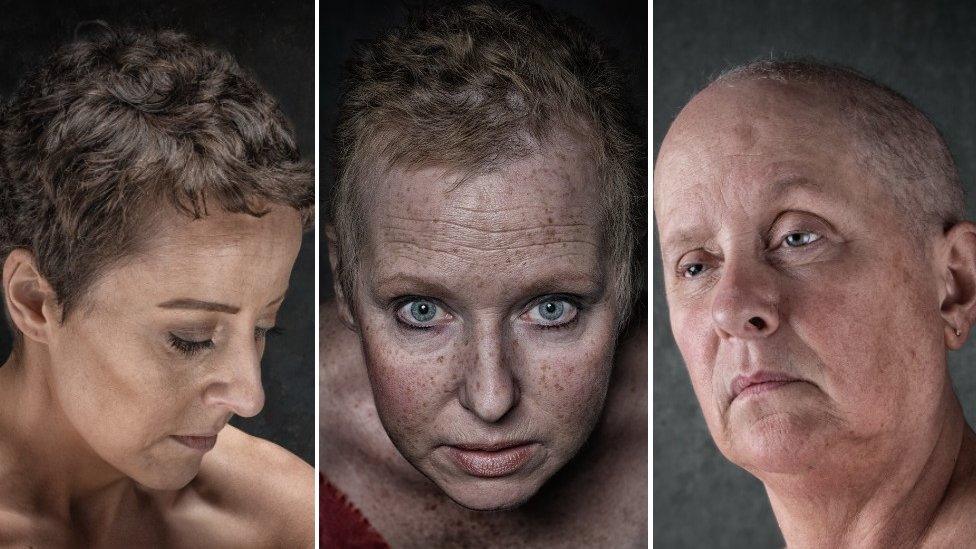NI Health: Quarter of cancer patients diagnosed in A&E
- Published
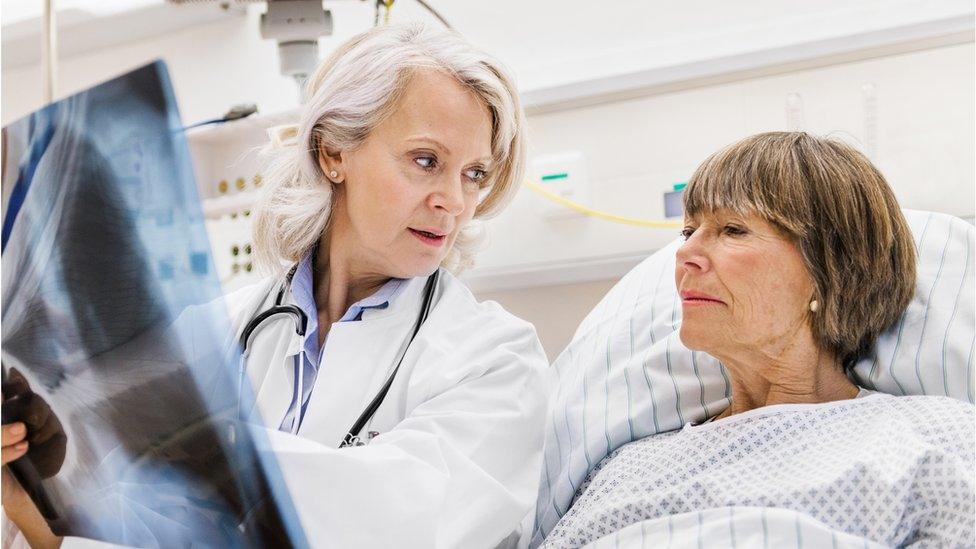
More than a quarter of cancers in Northern Ireland are being diagnosed in hospital emergency departments, according to Cancer Research UK.
The study, published in The Lancet Oncology, was supported by NI Cancer Registry at Queen's University Belfast.
The global study, external is understood to be the first of its kind.
It looked at 857,068 cases diagnosed between 2012 and 2017 in six countries including Australia, Denmark and the UK.
Clare Crossey, 35, from Lurgan was diagnosed with acute myeloid leukaemia in February 2018 after being admitted to hospital as an emergency.
The 35-year-old mother-of-two, who is a domiciliary care assistant, suddenly became very unwell with symptoms including tiredness and bruising.
She told BBC News NI she had contacted her local health centre, where a GP told her she was being overly anxious.
'I was diagnosed with leukaemia in A&E'
Ms Crossey said she had panicked, fearing she may have leukaemia after looking up her symptoms on the internet.
"I had a feeling that things weren't right," she said.
"The doctor did not agree with my suspicions as they passed me the number of the Samaritans helpline, a prescription for beta blockers and told me to wait a week for blood tests."
Life changed overnight
Over the next few days, Ms Crossey's condition deteriorated, as her gums began to bleed and she developed a large bruise on her thigh which was also swollen.
She said: "I went to Craigavon's A&E, they did blood tests and within hours a consultant broke the news to me that I might have leukaemia."
The medical team told her that had she waited any longer to come to the emergency department, she could have died, said Ms Crossley.
Chemotherapy started immediately and, while initial tests showed her bone marrow was clear of cancer, it returned.
"It was devastating," she said. "I was readmitted to hospital and was there for three months."
Ms Crossey required a stem cell transplant.
Her brother and sister, who both live in America, were tested for compatibility, and her sister Alison was found to be a 100% match.
Three years ago, Ms Crossey went through her stem cell transplant which she said saved her life.
Positive in dark days
"I am so grateful to everyone who helped me, giving me more precious time with my girls," she said.
"On 15 April, I will be three years post-transplant. I call this my 'other' birthday, so I will be three."
Her message for other people going through a cancer journey was to stay positive.
"Remember that no matter how rough a day you are having there is always someone worse," she said.
"Allow yourself time to recuperate and let your body heal.
"The right attitude and support will see you through all the dark days."
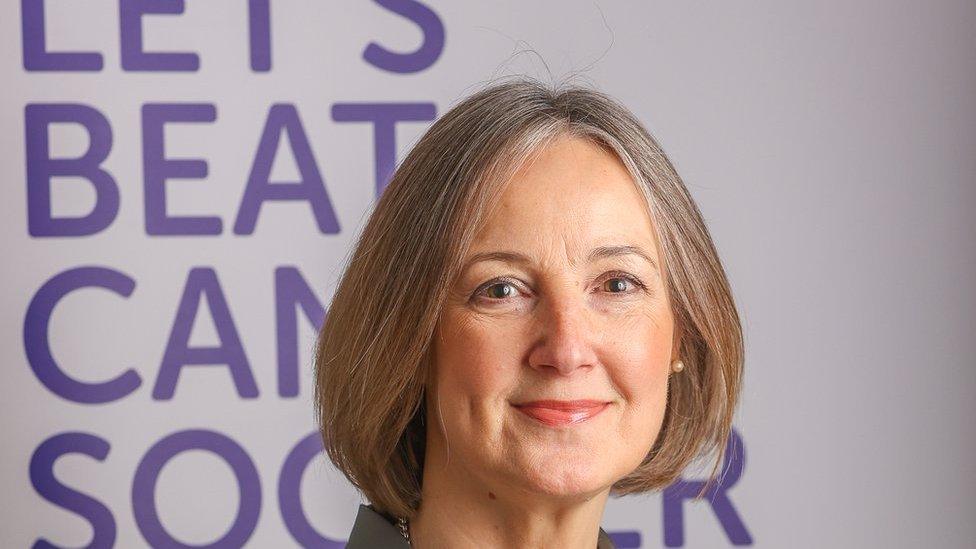
Barbara Roulston said the findings were worrying
Barbara Roulston, from Cancer Research UK, said the study confirmed too many people were only being diagnosed with cancer once their health had deteriorated to a point when they needed to go to their emergency department.
"We need to reduce the number of cancer diagnoses that are happening in this way," she said.
"That means renewed focus on early diagnosis and prevention through things like better awareness of symptoms, better uptake of screening programs and the way to do that is to get funding for the cancer strategy which was published recently.
"If we don't, the risk is that we will start to see cancer survival going backwards."
The study also found that those cancers with often non-specific, vague symptoms - such as pancreatic liver, lung and ovarian cancer - were also likely to be diagnosed via an emergency department.
Researchers also raised concerns that Covid-19 had exacerbated the situation, as fewer people came forward with symptoms and there was reduced access to cancer tests.
Londonderry GP Dr Joe McAvoy agreed the pandemic has had a big impact on how patients are being diagnosed with cancer.
He told BBC News NI's Good Morning Ulster programme that diagnostic services were being "stretched" by a combination of staff shortages in GP surgeries, the closure of some hospital services and the changing role of A&E departments.
He said: "If I see someone I'm very concerned about, and I would like them to be seen by a consultant rapidly, often they are being sent by the consultant to A&E.
"So it means A&E becomes a massive funnel and bottleneck for problems such as late presentation of cancer."
Screening is 'crucial'
The report centres on data gathered between 2012 and 2017, and Dr McAvoy said he believed there would be "a major rise in those figures if they were checked again now".
He encouraged people to take up appointments for cancer screening saying those services were "crucial" in detecting the disease before there were symptoms.
Dr McAvoy said: "Our screening facilities are increasing and they are improving. I would strongly encourage people, given the like of these figures, to attend screening to make sure they don't become part of the statistics."
Dr Anna Gavin, from the NI Cancer Registry at Queen's University Belfast, said being part of international research was vital to interpret how Northern Ireland compares to other countries.
"As a result of this project, the NI cancer registry now reports emergency presentation as a variable in the official cancer statistics," said Dr Gavin, who co-wrote the report.
"These figures highlight the need for better awareness of the symptoms of cancer to promote earlier diagnosis. "
The study makes a number of recommendations, including that there should be:
Better symptom awareness
Reduced barriers to cancer screening
Additional diagnostic capacity to improve the early diagnosis of cancer
- Published31 March 2022
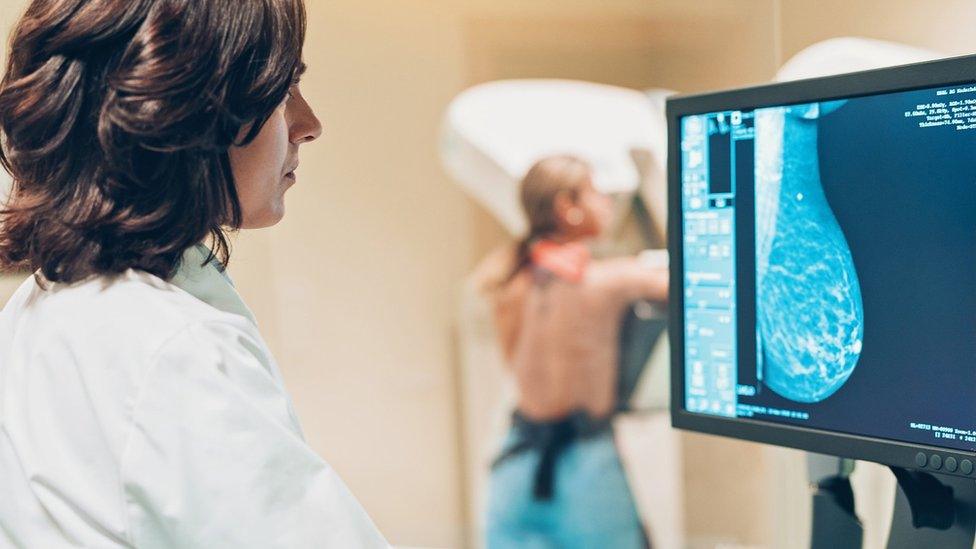
- Published5 January 2022
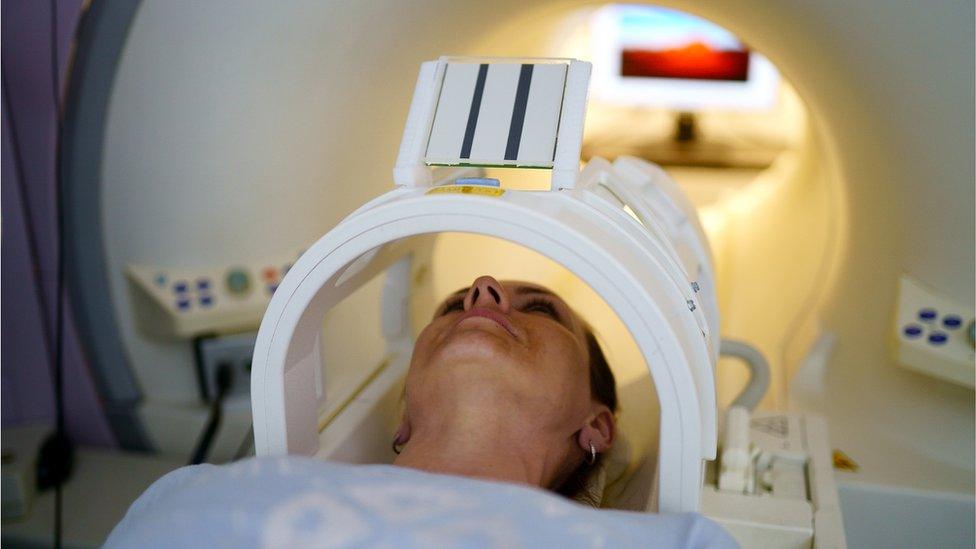
- Published16 March 2022
